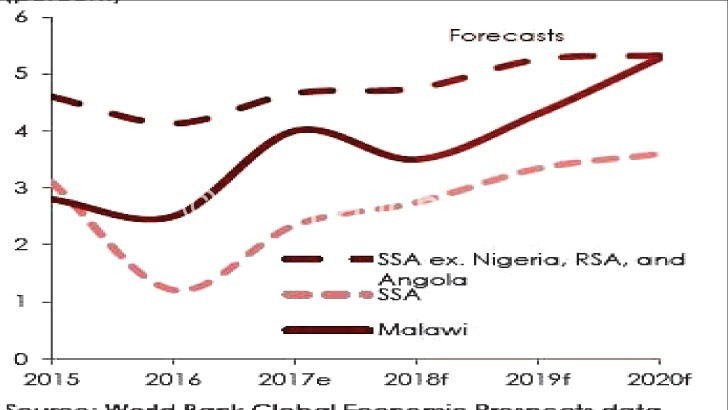Rebasing GDP winds up December—NSO
National Statistical Office (NSO) says it will complete rebasing the country’s gross domestic product (GDP) in December this year.
The exercise seeks to capture the current structure of the economy.
In a written response, NSO spokesperson Kingsley Manda said on Friday the exercise, which is included in the economic census, will cost K800 million and is jointly being funded by the African Development Bank (AfDB) and Malawi Government.

He said: “The economic census data collection period is from December 2018 to April 2019. Data analysis will start immediately for a period of about six months. The project is winding up on December 31 2019. The new calculations will include small and medium businesses since these are included in the census of economic activities.
“We know that the structure of the economy is not static; hence, the significance of this to the economy is the fact that we will capture the current structure of the economy because the numbers that we have now are based on the 2010 structure.”
Rebasing GDP means changing the base year when calculating the nominal GDP at current market prices. Malawi has been using 2010 as a base year.
Minister of Finance, Economic Planning and Development Goodall Gondwe earlier observed that many things are happening in the private sector, but are not recorded formally when calculating GDP, which is the total value of all final goods and services produced within a country in a year.
“If we include those, our GDP will be much bigger than now,” he said, observing that it is unfair to say that Malawi is a small economy as most economic activities are not taken into account when calculating national wealth.
However, Institute of Chartered Accountants in Malawi (Icam) chief executive officer Francis Gondwe, while observing that the move may help bring out the right perspective about the size of the economy and help spur foreign direct investment, said having a higher GDP figure is meaningless when citizens are wallowing in abject poverty.
Traditionally, Malawi has used GDP as a measure of economic growth which was initially developed in the United States in early 1930s.
This year, government is projecting the economy to grow by seven percent, banking on good rains expected to boost agricultural output.
The Malawi Government Annual Economic reports from 2011 to 2017 indicate that in the seven-year period, Treasury had been revising downwards growth projections.





